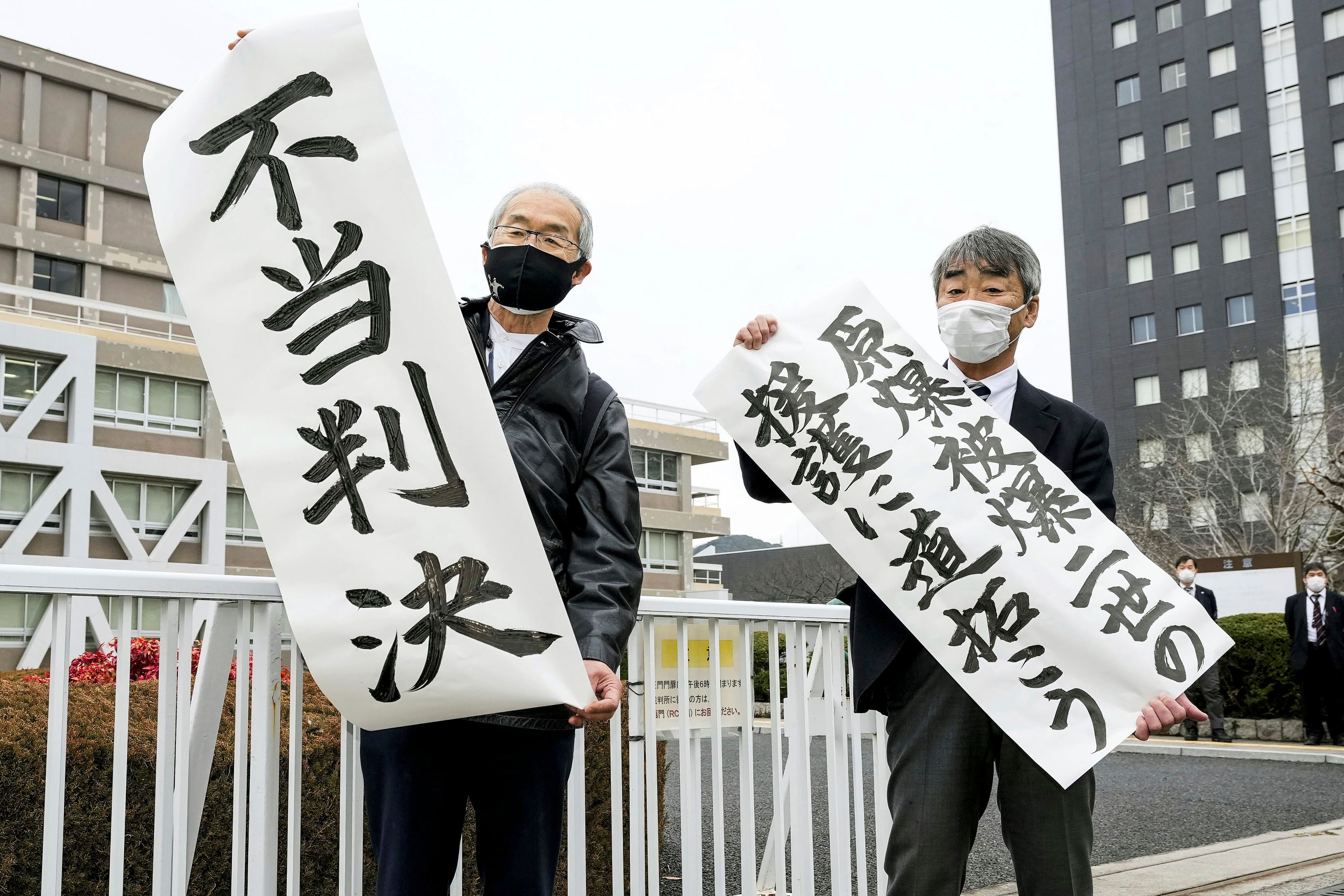Court denies aid for Hiroshima A-bomb survivors' children
A Japanese court has rejected a damage suit filed by a group of children of Hiroshima atomic bombing survivors seeking government support for medical costs, saying the hereditary impact of radiation exposure is still unknown

Your support helps us to tell the story
From reproductive rights to climate change to Big Tech, The Independent is on the ground when the story is developing. Whether it's investigating the financials of Elon Musk's pro-Trump PAC or producing our latest documentary, 'The A Word', which shines a light on the American women fighting for reproductive rights, we know how important it is to parse out the facts from the messaging.
At such a critical moment in US history, we need reporters on the ground. Your donation allows us to keep sending journalists to speak to both sides of the story.
The Independent is trusted by Americans across the entire political spectrum. And unlike many other quality news outlets, we choose not to lock Americans out of our reporting and analysis with paywalls. We believe quality journalism should be available to everyone, paid for by those who can afford it.
Your support makes all the difference.A Japanese court on Tuesday rejected a damage suit filed by a group of children of Hiroshima atomic bombing survivors seeking government support for medical costs, saying the hereditary impact of radiation exposure is still unknown.
A group of 28 plaintiffs whose parents suffered radiation exposure in the Aug. 6, 1945, U.S. atomic attack were demanding the central government include them in the medical support available to survivors.
The Hiroshima District Court said the possibility of a hereditary effect from radiation cannot be denied, but there is no established scientific consensus and the government’s exclusion of the plaintiffs from medical support is not unconstitutional.
The government has insisted there is no scientific evidence showing a hereditary effect from parents’ radiation exposure on their children.
The plaintiffs filed a lawsuit in 2017 seeking 100,000 yen ($760) each from the government in damages, saying their exclusion violated the constitutional right to equality.
A similar lawsuit by their peers in Nagasaki was also rejected in December.
The plaintiffs said they plan to appeal Tuesday's decision, which they called “unjust."
“It was an extremely cold ruling,” plaintiff Taku Kakuda told reporters. “It was as if we were told to prove the radiation impact on humans with our bodies.”
The atomic bombing of Hiroshima destroyed the city and killed 140,000 people. The United States dropped a second bomb three days later on Nagasaki, killing another 70,000. Japan surrendered on Aug. 15, 1945, ending World War II and its nearly half-century of aggression in Asia.
Many survivors of the bombings have lasting injuries and illnesses resulting from the explosions and radiation exposure and have faced discrimination in Japan.
Their children, known as “hibaku nisei,” or second-generation survivors of atomic bombs, say they constantly worry about the possible hereditary effects of radiation from their parents’ exposure, and many have developed various forms of cancer and other health problems. They estimate their numbers at 300,000 to 500,000.
Currently, only survivors and those with prenatal exposure who were certified can receive government medical support for their radiation illnesses and cancer checkups. The government started providing free medical checks for their children in 1979 but cancer examinations are not included.
“We understand that the court acknowledged our argument,” Chief Cabinet Secretary Hirokazu Matsuno said of Tuesday's ruling.